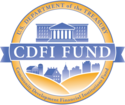When is Debt Consolidation the Answer? What You Should Know
The average American carries thousands or even tens of thousands of dollars in debt. Across the nation, according to Bankrate.com, consumer debt totals more than $14 trillion. From student loans to credit card debt, the financial burden many carry into adulthood can prove to be a significant hindrance. For example, homeownership among millennials is already nearly 30% lower than it was for Baby Boomers at the same life stage. Over time, even servicing the interest on an individual’s debt may become difficult.
With many different sources of debt, the large volume of payments can feel overwhelming. Managing them may be a prime source of stress and tension — then you hear about a process called “debt consolidation” that some say offers a way out of the hole. Is it too good to be true, or a viable process you could take advantage of for personal financial improvement?
There are many misconceptions about debt consolidation, how it works, and when it’s a wise course of action. Before you consider taking this step, it is advisable to consider all the facts. Here’s what you need to know.
What Is Debt Consolidation?
Simply put, consolidating your debt is precisely what it sounds like: instead of paying multiple lenders month after month, you bundle all your existing debt together into one lump total. The typical process for debt consolidation involves receiving approval for a personal loan large enough to cover all your current balances. You then take the proceeds from the loan to pay off the other lenders — such as credit card issuers and other unsecured loans. Some loans, such as student loans, are only available for consolidation if they came from the government initially. At the end of the process, you will no longer need to pay multiple companies at different times over the course of every month. Your personal loan will now contain all the previous debt you held.
You may hear the word “refinancing” used as a synonym or in conjunction with consolidation. Refinancing refers to improving the interest rate you pay on the loan. For example, when you consolidate high-interest credit card debt, you may qualify for a lower rate that keeps your long-term expenses down. Not everyone who consolidates will receive a dramatically better interest rate, but those who can, will find it makes meeting their payments easier.
What Are The Benefits to Consolidating Your Debt?
For those with large debts, considered to be more than $10,000 spread out among lenders, consolidating offers a range of advantages. In fact, for those committed to avoiding additional debt and repaying their loans as fast as possible, consolidating offers several distinct advantages. Some of the perks include:
- Less monthly hassle making payments. With a single point of contact, you never need to worry about splitting up paychecks to cover different disbursements. You can leave behind the anxiety of wondering if there was an important payment you forgot about this week. Instead, make one loan payment every month for convenience.
- Lower interest rates. As mentioned, consolidating debt often opens the door to a better interest rate. That means you pay less on your debt over time, saving money and speeding up the process.
- Lower monthly payments. You won’t only pay less in interest; many loan providers will offer longer or more generous terms to provide you with more financial wiggle-room. Keep in mind, though, that lower payments do typically require more time to pay back the full amount of the loan.
- A clearer path to becoming debt-free. With set, scheduled payments for a fixed term, you’ll always know exactly how much work is left to clear your debt entirely.
Is Debt Consolidation Is A Good or Bad Idea
In most cases, those with high debt loads will see benefits from consolidating. If you do not have much debt, there is less reason to consider consolidation. There are also some caveats to consider. Your credit score may temporarily drop when opening a consolidation loan, owing to the loss of older credit accounts and a change in your utilization rate. If you have special terms for existing debt, consolidation may wipe out those terms. Those looking for relief from high debt loads should also beware of predatory lenders and consolidation services that seek to levy high fees for the privilege of taking out one of their loans.
When to Consider Debt Consolidation: A Checklist
Still not sure if this is the right choice for you? Some of the signs that show you should consolidate include:
- Regular income that will make supporting the payments simple.
- You do not have a debt load so insurmountable that bankruptcy may be a better option than consolidation.
- Your spending habits are under control.
- You can qualify for better interest terms.
Taking the next steps by finding a trustworthy financial institution may be the right move if you align with this profile.
Finding Loan Terms That Make Sense for Your Needs At Resource One Credit Union
If it seems that consolidation would be a smart choice for your finances, finding good terms is crucial. After all, consolidating your debt only to continue paying the same may not provide the pressure relief valve you hope to have. At Resource One Credit Union, we make it simpler to apply for consolidation loans to aid in gaining control over your debt load. A not-for-profit financial institution, we are member-owned and focused on providing the best solutions possible for our customers. With a Resource One consolidation loan, you could lower your monthly payments, lock in a better interest rate, and provide yourself with a clear path back to control over your finances.
To find out more about our consolidation loan solutions, apply online or contact us with your questions.
Find a R1CU Location Near You
Carrolton | Cedar Hill | East Dallas | Irving | Mesquite





